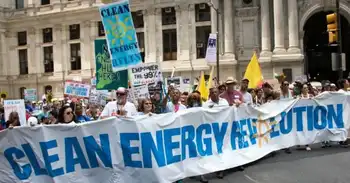Minnesota Signs Deal With Manitoba Hydro
WINNIPEG -- - The Minnesota Public Utilities Commission has unanimously approved a $1.7 billion power export deal with Manitoba Hydro.
It allows Minneapolis-based Xcel Energy to import power from Manitoba Hydro, despite the objections of aboriginal groups.
The 500-megawatt, 10-year deal was given the go-ahead.
It's an extension of an existing deal and will allow power to be exported until 2015.
Approval by Canada's National Energy Board is pending.
The Minnesota decision is a blow to the Pimicikamak Cree Nation of Cross Lake, Manitoba. They had asked the commission to first call a formal hearing into the social and economic impact of historic hydro development on their homeland.
Related News

Germany is first major economy to phase out coal and nuclear
BERLIN - Germany Coal Phase-Out 2038 advances the energy transition, curbing lignite emissions while scaling renewable energy, carbon pricing, and hydrogen storage amid a nuclear phase-out and regional just-transition funding for miners and communities.
Key Points
Germany's plan to end coal by 2038, fund regional transition, and scale renewable energy while exiting nuclear.
✅ Closes last coal plant by 2038; reviews may accelerate.
✅ 40b euros aid for lignite regions and workforce.
✅ Emphasizes renewables, hydrogen, carbon pricing reforms.
German lawmakers have finalized the country's long-awaited phase-out of coal as an energy source, backing a plan that environmental…




